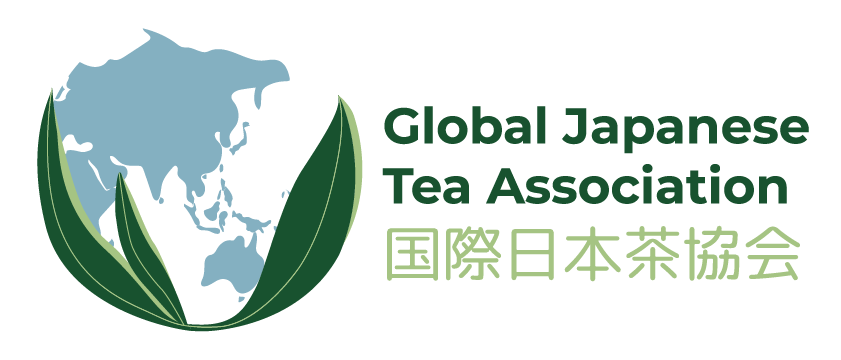The start of tea shooting in Kyoto was announced on 2nd April with the harvest expected in about a month. In Kagoshima, though, the auction already opened on 4th April. 104 items totaling 5.9t of tea were auctioned that day. This year the highest bid as well as the average price of the first day was much higher than last year (average price in 2024 – 3,869 yen, versus 2,748 yen in 2023). In Shizuoka the auction opened a bit later – on 12th April. It was the earliest start of the auction since 1956, but only 50.8kg were auctioned that day. Among them was the most expensive tea in Japan – hand-rolled sencha that sold for more than 1.1mln. yen/kg. Tea auctions of other prefectures opened a few days later: in Saga on 15th April, in Fukuoka on 17th April. In Kyoto the auction that opened on 24th April celebrated its 50th anniversary this year.
There were a few other openings in Kyoto this month as well. On 26th April Starbucks opened a new store in Kyoto Porta focused on tea – Starbuck Tea & Cafe. It is one of only 12 stores around the country specializing in tea. Also on 26th April, Fukujuen opened the Art Space on the 7th floor of its Kyoto City building, which plans to display a wide range of art genres with the shared theme of tea. The first exhibition to run until 25th June is called In Praise of Tea Flowers by Sayaka Toda.
On the 1st May ItoEn is also opening the Museum of Tea Culture Creation in Tokyo. The museum will exhibit tea utensils from the Edo period to modern times. It will also introduce the production process of its flagship bottled tea – Oi Ocha. In Fukuoka Prefecture, Ashiya Town is creating Ashiya Kama no Sato. Expected to open in November it will show the tradition of Ashiya tea kettle (chagama) production and display one of eight Ashiya kettles that is considered a nationally important cultural property and that was bought by the museum for 275mln. yen.
In Iga City, Mie Prefecture a chief priest of Sainenji temple and his wife have opened a cafe inside the temple. With the decreasing number of worshipers, the priest and his wife wanted to make the temple – a place where all kinds of people could gather. The cafe has a total of 12 seats and serves various drinks including matcha and banana leaf tea.
The Saidaiji temple in Nara resumed its extra large bowl tea ceremonies on 13th and 14th April. The tradition goes back several hundred years, but was interrupted during the pandemic. The bowls, shared by several people, are 30-40cm in diameter and can weigh between 3kg-6kg. On 8th April another temple in Nara – Kofukuji had a special memorial service to commemorate Buddha’s birthday. During the event worshipers had a chance to scoop and pour sweet tea on a Buddha statue. On 2nd April in Kikugawa City, Shizuoka Prefecture a tea picking and rolling event was held to make an offering to Eisai, who is considered the father of Japanese tea for bringing tea seeds from China to Japan about 800 years ago. Because it was still early in the season the event took place in a greenhouse. The finished tea was offered in hopes of a prosperous tea season.
In slightly different news, a golden matcha bowl was stolen from an exhibition at the Takashimaya department store in Tokyo. The exhibition displayed more than a thousand golden artifacts and the bowl was valued at 10.4mln. yen. Luckily it was recovered a few days later with the suspect being arrested.
The article is bases on Japanese media articles:
- Uji tea season has arrived! Kyoto Prefectural Tea Research Institute declares first tea buds sprouting, Asahi Shimbun 2024.04.03
- First plucking in Kikugawa before the new tea season House cultivation for tea offerings, Asahi Shimbun 2024.04.04
- Come, Tea Pickers! Uji City, a major tea production center, matches up prospective pickers with tea farmers, Asahi Shimbun 2024.04.04
- New tea quality is assured at the first trade fair in Kagoshima, Yomiuri Shimbun 2024.04.05
- Gently pouring sweet tea at the Buddha’s birthday celebration at Kofuku-ji Temple, Asahi Shimbun 2024.04.09
- National Important Cultural Property “Ashiya Haikoji Shinkata Kettle” exhibition facility will open in November…Ashiya-cho, Fukuoka Prefecture, the birthplace of the Ashiya kettle, Yomiuri Shimbun 2024.04.11
- The traditional “spinning drink” is back after a four-year absence…Great Tea Ceremony at Saidaiji Temple, Nara, Yomiuri Shimbun 2024.04.11
- Earliest ever first trade of new Shizuoka green tea, average unit price 10 times 70,000 yen, Nikkei Shimbun 2024.04.12
- The highest price for “Ureshino-cha” was 58,000 yen, a record high for a kilogram of new tea, Mainichi Shimbun 2024.04.15
- Stolen pure gold tea bowl recovered at Tokyo antique shop, Japan times, 2024.04.16
- First bidding for Yame tea in Fukuoka, with a good aroma and taste, including sencha at 100,000 yen per kilogram, Mainichi Shimbun 2024.04.18
- Oi-Ocha Museum” to open on May 1 in the former Shimbashi Station…tea utensils and past packages to be exhibited, Yomiuri Shimbun 2024.04.23
- Starbucks Porta, a Starbucks that offers “tea” satisfaction…opening on the 26th, Yomiuri Shimbun 2024.04.25
- Art gallery in Fukujuen to appreciate the art of “tea” while sipping it, Mainichi Shimbun 2024.04.26
- First Uji Green Tea Market in Joyo, Japan: JA’s Bidding Volume More Than Triples Previous Year’s Price, Mainichi Shimbun, 2024.04.26
- How About Coffee at a Temple? A couple of priests from Iga City, Mie, opened a café, Asahi Shimbun 2024.04.28

